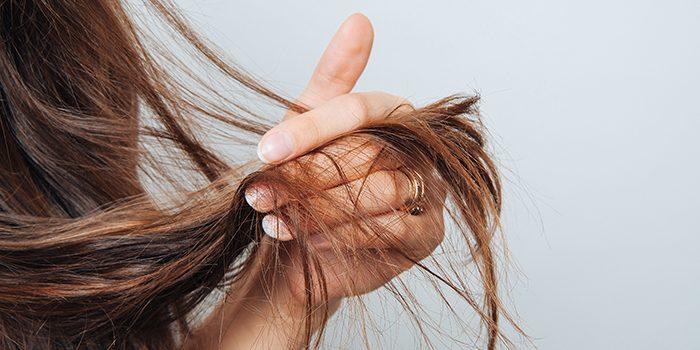




-
595 Views 0 Comments 0 Likes

Dry, damaged hair is frequently the result of overuse of heat or styling agents. Consider the advantages of utilizing a moisture-restoring hair mask before going to the salon for a significant haircut.
Certain oils, nutrients, and other components can all help to restore damaged hair in various ways. Many of the components listed below may be found in hair products, but you can also make DIY hair masks at home.
Simply cover your hair (the full length or just the scalp or ends) with the components listed below, leave under a shower cap for up to 30 minutes, and rinse.
Argan oil, which has traditionally been used for better hair growth, can also be used for dry hair restoration. It's high in fatty acids and vitamin E, which helps to protect and repair your hair.
This ingredient is commonly found in conditioners and styling treatments, but you may also prepare your mask with it.
You're certainly aware of the heart-healthy benefits of ingesting olive oil in moderation, but it may also have hydrating effects on the hair. If you have an oily scalp, apply olive oil to your dry ends.
Coconut oil is more than just a popular kitchen ingredient. When applied as a mask, the oil produced from coconut flesh is said to be high in proteins and can potentially hydrate and strengthen your hair.
Furthermore, researchers suggest that coconut oil may have anti-inflammatory qualities that could aid in dry scalp disorders treatment.
Lavender essential oil is well-known for creating emotions of serenity. It has anti-inflammatory qualities that may aid dry skin. Such effects may also be felt in dry hair and on the scalp.
To avoid rashes and other adverse effects, lavender oil should be diluted in shampoo or carrier oil before usage.
Almond oil, which is sometimes used as a carrier oil, has long been a standard in natural skin care. The moisturizing advantages can also be useful in hair care.
When applied to the scalp, anti-inflammatory qualities may help in the dry scales treatment caused by dandruff, eczema, and psoriasis.
Almond oil is also high in emollients, which help hydrate and soften your hair.
While jojoba oil is commonly used to dilute essential oils, it also provides hydrating benefits for hair and skin when applied alone. It can be applied directly to your hair and scalp. The oil is even light enough to be used on greasy skin.
Sandalwood oil, known for its warm, woody scent, may be utilized for more than just a fragrance in your home diffuser. This oil may perform especially effectively on the ends of your hair, moisturizing and sealing split ends. It's also may help with eczema and psoriasis.
Avocados are high in monounsaturated and polyunsaturated fats, both of which are beneficial to the heart. Yes, it is healthy. However, these natural oils are believed to also assist your hair, mostly by supplying moisture.
You can get the moisturizing effects of mashed avocado by combining it with carrier oil or by using avocado oil alone. It may also enhance shine and function as a leave-in conditioner for very dry hair.
Because of its high lauric acid content, coconut milk is commonly used in over-the-counter hair treatments.
Using coconut milk has the extra advantage of potentially strengthening and stimulating hair growth.
Honey appears in several hair mask recipes. Honey not only holds other ingredients together when producing a multi-ingredient hair mask, but it's also said to give hydration and shine to your hair on its own.
A honey hair mask could also help to decrease breakage and frizz.
Yogurt, especially Greek yogurt, is high in probiotics and a popular ingredient in DIY hair masks. These probiotics are considered to help exfoliate dead skin cells while also keeping your hair nourished.
Yogurt also aids in the adhesion of multi-ingredient hair masks for simpler application.
Shea butter has grown in popularity as a skin treatment in recent years, but this ultra-moisturizing ingredient may also assist with excessively dry hair and scalp. Shea butter is also claimed to help prevent hair breakage, consequently strengthening the cuticle.
Mango butter is a rich emollient made from mango fruit seeds that are commonly used for dry, brittle hair due to its high lipid content. It can be purchased and melted at home to create a creamy mask. It's also frequently combined with other nourishing substances like shea butter and coconut oil.
Keratin is a protein that occurs naturally in hair and nails. While some over-the-counter products include keratin, they are only designed for infrequent usage to thicken hair. Protein hair treatments can cause further dryness and damage if used excessively, so use them sparingly. However, they can also cause hair loss if you're sensitive or allergic to the chemicals in your treatment. Unfortunately, a professional hair loss treatment may be required in this case.
With a growing emphasis on natural ingredients, many people are creating their DIY hair masks at home. You may also be able to treat dry, damaged hair by using conventional hair products containing the substances listed above.
Whatever approach you select, be patient and experiment with different ingredients until you find the greatest fit.



